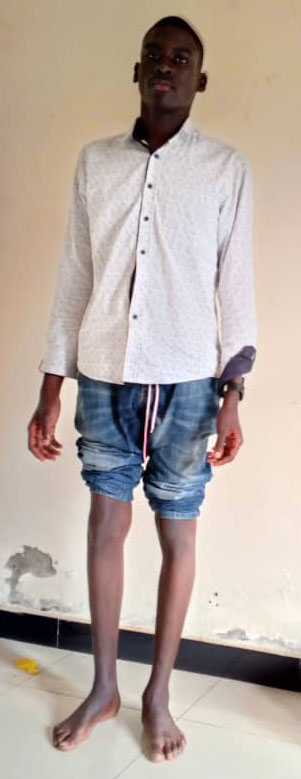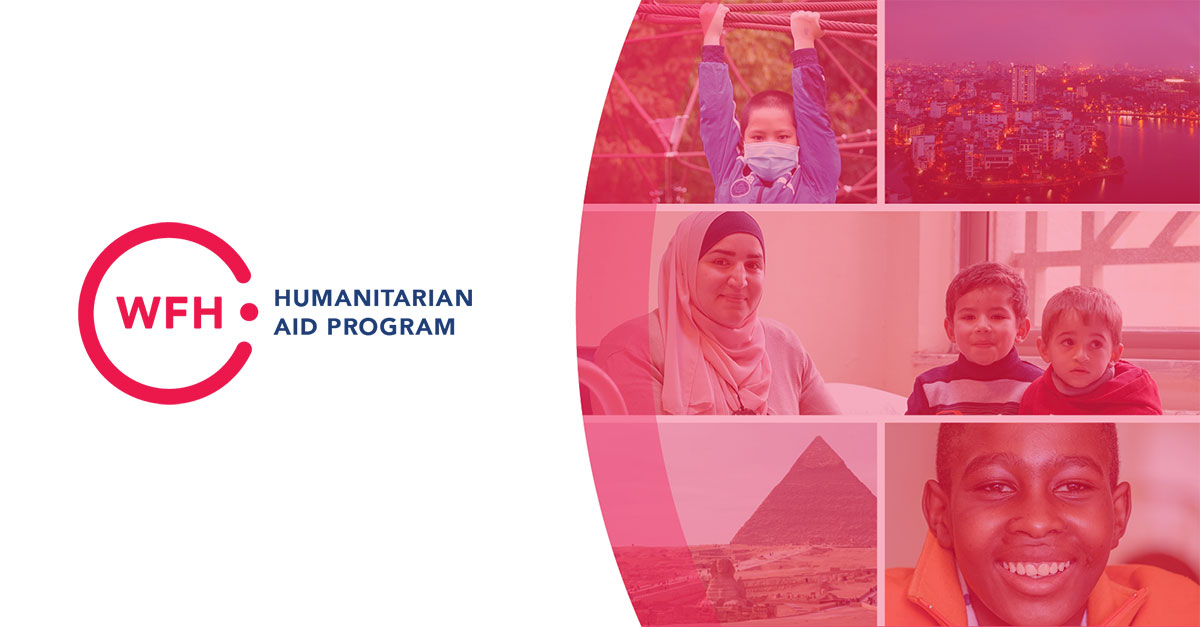These activities have had a significant impact on the inherited bleeding disorders community in Uganda, bringing hope and a better quality of life to thousands of people with a bleeding disorder in the country. Today, we hear from Jeremiah Ogenrwot, a boy with severe hemophilia A, who has benefitted from WFH support. This support has come indirectly in the form of medical education for physicians which allowed him to be properly diagnosed, and direct support through donated treatment product provided by the WFH Humanitarian Aid Program. His letter has been edited for clarity.

Dear sir/madam,
I convey my sincere greetings through this correspondence. I am Jeremiah Ogenrwot from Northern Region, Uganda. I’m 15 years old, and I was born in Lira Regional Referral Hospital. According to my mom, I was delivered through a cesarean section procedure that affected my spinal cord. Doctors discovered a bleed in my spine that almost made me pass on. My mother doesn’t know how the bleed was managed.
A ray of hope came into my mother’s life in 2013 when she met doctor Humes in Mulago Hospital who offered to do a bleeding time and a clotting time test, to investigate my bleeding problem and determine if I was suffering from a factor deficiency. The test confirmed I had hemophilia. The confirmation of my condition helped make the management of my bleeds easier, since I was now in the system, and medical specialists knew what to do to help me. From that moment forward, my family and I had more hope for my life and future. This is because the life-threatening bleeds I used to get through urinating blood, bleeding too long after minor injuries, knee, and ankle bleeds became a thing of the past thanks to access to factor. The treatment products have also allowed me to improve the mobility of my knee so I can now bend it straight.
I sincerely extend my heart-felt gratitude to the WFH. It is because of you that I am alive. I also extend my sincere appreciation on behalf of my young friends who have hemophilia and who and have been helped by the HFU through factor donations. Great appreciation also goes to the pharmaceutical companies who manufacture the factor.
I also appreciate my “next mum” Agnes Kisakye, Executive Secretary of the HFU, for always standing by me and others as well.
Thank you,
Jeremiah Ogenrwot
The WFH Humanitarian Aid Program has donated over 17.4 million IUs of factor and over 194,000 mg of non-factor replacement therapy to Uganda since 2015. Nearly 3.4 million IUs of factor, and 60,000 mg of non-factor replacement therapy were donated last year alone. To find out more about the WFH Humanitarian Aid Program please click here.
About the WFH Humanitarian Aid Program
The WFH Humanitarian Aid Program improves the lack of access to care and treatment by providing much-needed support for people with inherited bleeding disorders in developing countries. By providing patients with a more predictable and sustainable flow of humanitarian aid donations, the WFH Humanitarian Aid Program makes it possible for patients to receive consistent and reliable access to treatment and care. None of this would be possible without the generous support of Sanofi and Sobi, our Founding Visionary Contributors; Bayer, CSL Behring and Roche, our Visionary Contributors; Grifols, our Leadership Contributor; and Takeda and Japan Blood Products Organization, our Contributors. To learn more about the WFH Humanitarian Aid Program, visit www.treatmentforall.org.













